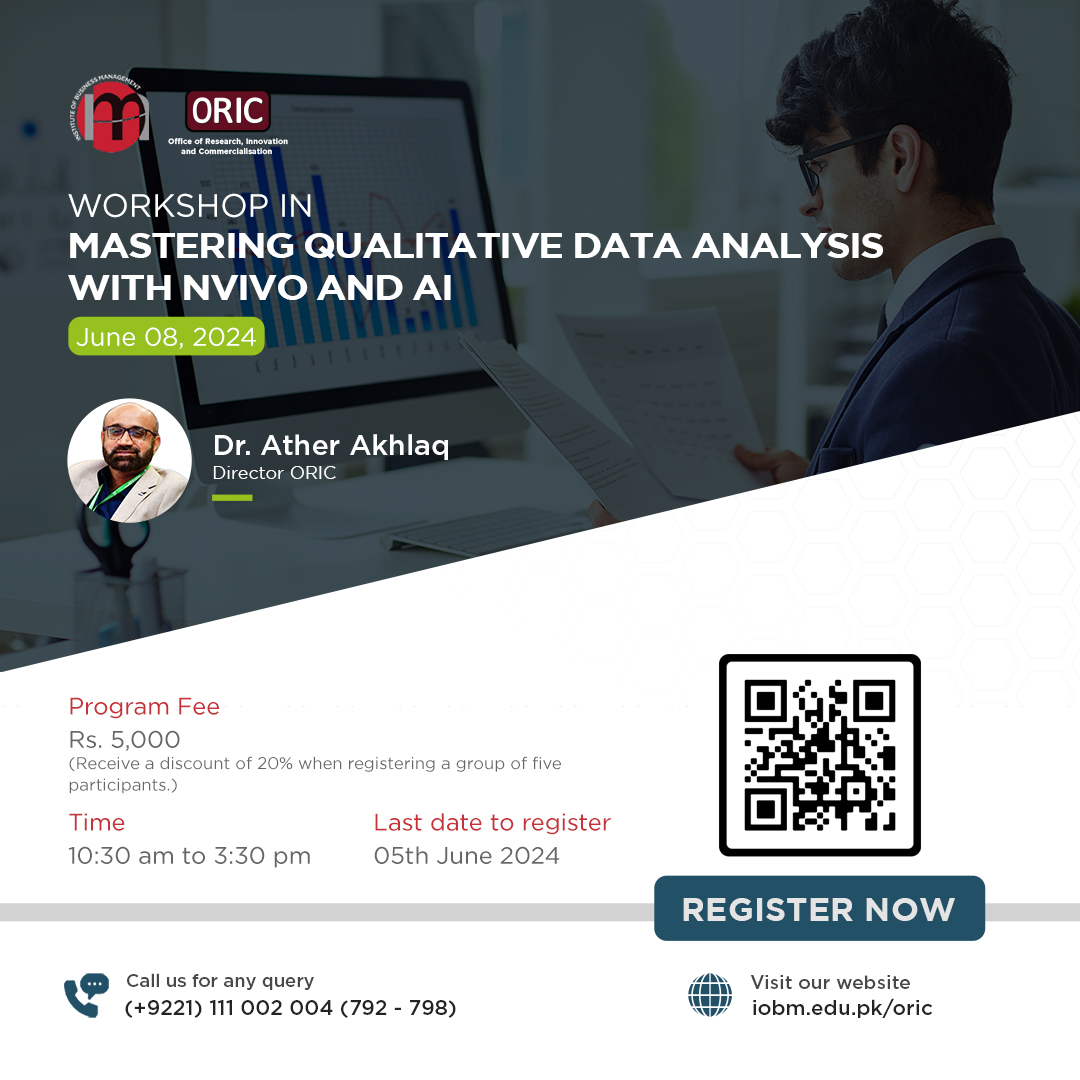Segment 1: oric
Segment 2: cd-commercialization
Segment 3: workshops
Overview:
The "Mastering Qualitative Data Analysis with NVivo" workshop is designed to provide participants with comprehensive training in using NVivo software for qualitative data analysis. Whether you're a researcher, student, or professional working in fields such as social sciences, business, or healthcare, this workshop will equip you with the essential skills to harness the full potential of NVivo for your projects.
Register Now
The participants should be able to
Speaker's Profile:
Dr. Ather Akhlaq, an Associate Professor of Health Informatics and Health Management, currently serves as the Director of ORIC at IOBM. He obtained his PhD from The University of Edinburgh, UK, which is one of the top 50 universities globally. Dr. Ather boasts extensive experience in interdisciplinary research, with a focus on diffusion of innovation and digital technologies in healthcare, asthma, child abuse, and digital business. His contributions have been featured in esteemed health and business journals. Proficient in mixed methods data collection and analysis, Dr. Ather has also provided consultation on digital and public health for numerous international research projects. Moreover, he possesses expertise in Systematic Literature Review, Grant Writing, and NVivo, augmented by comprehensive training experiences.
Who Should Attend?
Teachers, researchers, content creators, freelancers, and anyone working as a knowledge worker in today's knowledge economy.
Workshop Duration: 1 Day
Time: 10:30 am to 3:30 pm
Fee: Rs. 5000/-
(Receive a discount of 20% when registering a group of five participants.)
Day 1: Introduction to NVivo
Day 2: Data collection and analysis
Workshop Delivery:
Interactive Sessions: Hands-on exercises and activities to reinforce learning.
Demonstrations: Live demonstrations of NVivo features and functionalities.
Q&A Sessions: Opportunities for participants to ask questions and seek clarification.
Resource Materials: Workshop materials, manuals, and online resources provided for continued learning.
Certificate of Completion: Participants receive a certificate upon successful completion of the workshop.
_______________________________
Contact: oric@iobm.edu.pk
